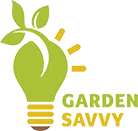The soil is the foundation for a healthy garden – healthy soil equals healthy plants. Whether you have a vegetable garden, flower garden, container garden, herb garden or a raised bed garden, the quality of soil matters.
What Is Organic Potting Soil?
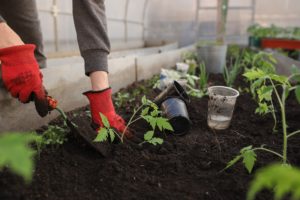
Organic potting soil is the “magic” ingredient to having healthy soil. But what makes soil organic? Organic soil refers to soil comprised of natural elements otherwise considered waste, such as compost, manure, leaves and other natural materials. Organic soil does not contain any pesticides or toxins, which can’t be said for non-organic soil mixtures.
Organic matter improves the fertility of the soil by replenishing nutrients that get stripped away during the blooming process. It creates an ecosystem for microorganisms and provides the proper nutrients for plants to thrive.
Benefits of Using Organic Potting Soil
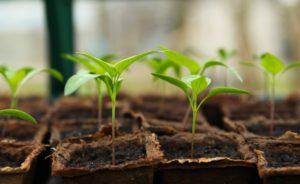
There are several benefits to using organic soil. These benefits can impact the growth of your crops, making them lush and healthy.
Below are some benefits of using organic potting soil:
- Helps plants resist disease
- Helps plants resist pests
- Improves native soil
- Saves time with less frequent watering
- Environmentally friendly
- Produces healthier plants
- Fruits and vegetables safe to eat
Organic soil helps plants resist disease and pests by creating a barrier of protection. This protection stems from the nutrient-rich soil creating strong and healthy plants that are better suited to ward of harmful diseases and pests. Plants that are resistant to disease and pests won’t need chemicals to do the job for them, saving gardeners time and money.
Adding organic matter to your native soil will enrich your existing soil by turning it into living soil. If you’ve had issues growing crops in your garden’s native soil, organic materials can give it that push it needs to create a healthy, thriving garden.
Gardens with organic potting soil need less frequent watering. The reasoning is organic soil will help your plants retain water in the soil, making it less necessary for gardeners to replenish water. When using non-organic soils, less retention of water means having to water more.
One of the best benefits of using organic potting soil is it’s better for the environment. Natural materials will contribute to a more sustainable garden by replenishing it with an abundance of nutrients growing season after growing season.
By putting natural materials back into the environment, we’re creating a mini eco-system for microorganisms to feed off of. This is what gardeners refer to as “living” soil.
Organic potting soil will also produce fruits and vegetables that are safe to eat, without harmful chemicals or toxins. When using non-organic soil, you’re running the risk of these chemicals making their way to the crops being grown. With organic soil, there are no chemicals to worry about.
Examples of Organic Materials in Organic Potting Soil
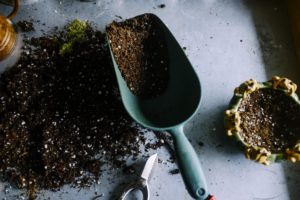
We know organic potting soil is comprised of natural materials found in the environment but for gardeners who want to make organic soil at home, what exactly are those ingredients?
Using a combination of any of the below materials will create organic soil for your plants to enjoy. Notice these ingredients could otherwise be considered waste.
- Mulch
- Manure
- Compost
- Leaves
- Soybean meal
- Bat droppings
- Worm castings
- Alfalfa meal
- Seaweed
- Soft rock phosphate
How Using Organic Potting Soil Will Improve your Garden
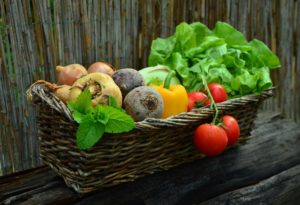
Still not sold on the many benefits of organic potting soil? The proof is in the pudding. Try it out yourself!
Compared to non-organic or synthetic soil, it contains more nutrients and minerals. It also helps plants retain water and provides the right amount of drainage your plants need to grow healthy and strong. Putting once living matter back into the environment will create the highest quality soil that contains a surplus of nutrients for your plants to grow.
Find & compare the world’s best garden suppliers for vegetable seeds or flower seeds to use in your garden. Garden Savvy is the gardening catalog of catalogs. Search our gardening database now!
